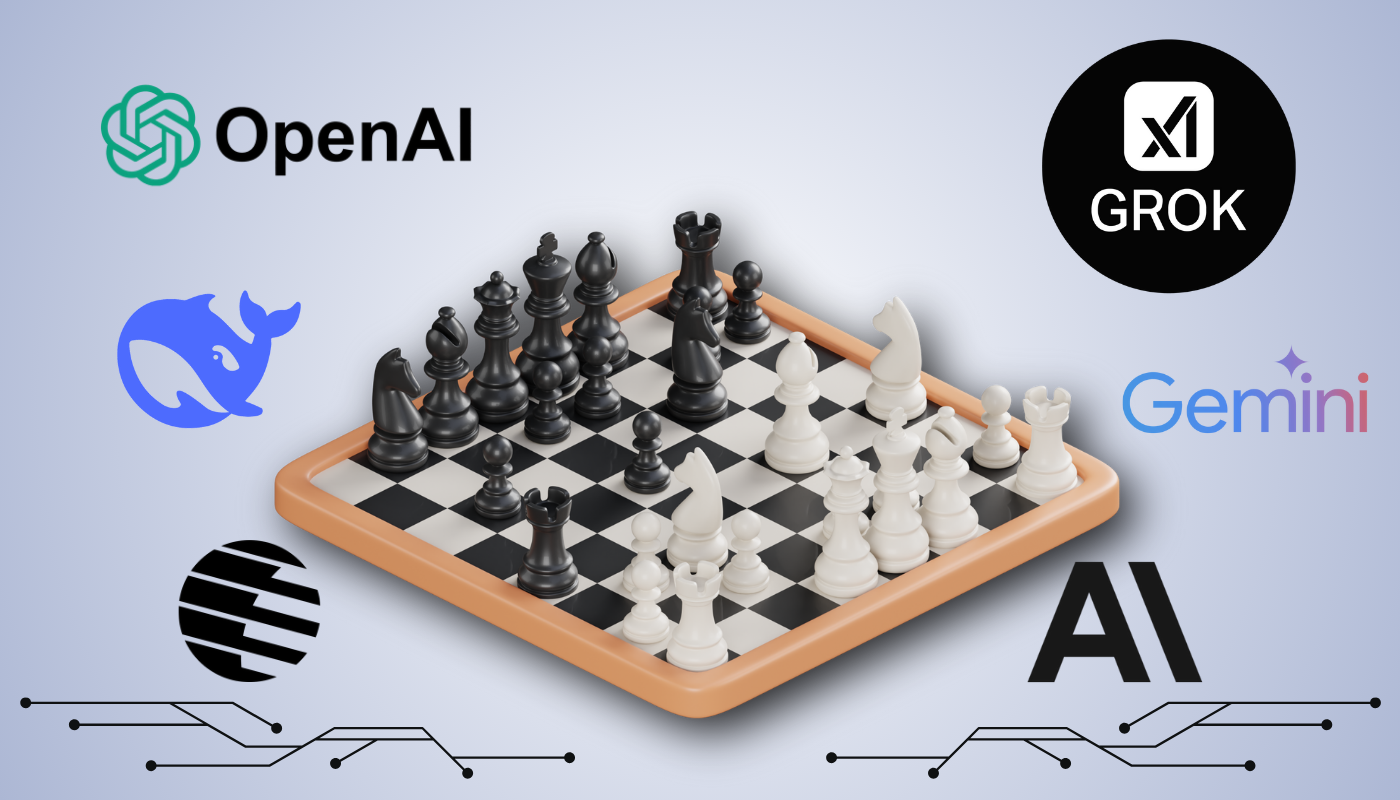OpenAI Triumphs Over Grok 4 in AI Chess Showdown

A New Frontier in AI Chess Competitions
A groundbreaking chess tournament recently took place, bringing together artificial intelligence models from some of the world's leading technology companies. This unique event, held on Google-owned Kaggle, showcased eight different AI models from prominent firms such as Anthropic, Google, OpenAI, xAI, and Chinese companies DeepSeek and Moonshot AI. The competition spanned three days and provided an intriguing look into the evolving capabilities of AI in strategic games.
In the final match, OpenAI's O3 model emerged victorious, defeating xAI's Grok 4 to claim the title. O3 remained undefeated throughout the entire tournament, demonstrating a high level of skill and precision. Grok 4 had been considered a strong contender up until the semifinals, but it faced challenges in the final round, making several critical mistakes, including losing its queen at a crucial moment.
Google's Gemini model secured third place after winning a playoff against another OpenAI model. Renowned chess grandmaster Hikaru Nakamura observed that while Grok 4 made several errors, OpenAI's models managed to avoid similar missteps, highlighting their superior decision-making under pressure.
Despite the impressive performance of the AI models, experts emphasized that they are still in the early stages of mastering the nuances of chess. The tournament was not just about showcasing technical prowess; it aimed to evaluate the strategic thinking and problem-solving abilities of widely available AI systems. This approach differentiated it from traditional competitions involving specialized chess engines.
Chess has long served as a benchmark for assessing computer intelligence. However, this event offered a fresh perspective on how modern AI models handle complex strategies in a competitive setting. OpenAI's flawless performance in the tournament underscored its model's tactical strengths, setting a new standard for future AI versus AI contests.
Key Highlights from the Tournament
- OpenAI's O3 Model: Demonstrated consistent performance, remaining undefeated throughout the tournament.
- Grok 4's Performance: Initially seen as a favorite, it faltered in the final, making several critical errors.
- Gemini's Third Place: Secured by overcoming another OpenAI model in a playoff.
- Hikaru Nakamura's Observations: Noted that OpenAI models avoided major mistakes, unlike Grok 4.
Implications for AI Development
The tournament highlighted the rapid advancements in AI capabilities, particularly in areas requiring strategic thinking and adaptability. While the models showcased remarkable skills, they still have room for improvement in understanding the subtleties of the game. This event serves as a valuable indicator of where AI stands today and what lies ahead in the development of more sophisticated systems.
As AI continues to evolve, future competitions may see even greater improvements in performance and strategy. The insights gained from this tournament could influence the direction of AI research, pushing developers to refine their models further. With each competition, the gap between human and machine intelligence narrows, opening new possibilities for the application of AI in various fields beyond chess.
The significance of this event extends beyond the board. It represents a milestone in the journey of AI, offering a glimpse into the potential of these systems to solve complex problems and make decisions in real-world scenarios. As the technology progresses, the role of AI in shaping the future of various industries will only continue to grow.

Comments
Post a Comment